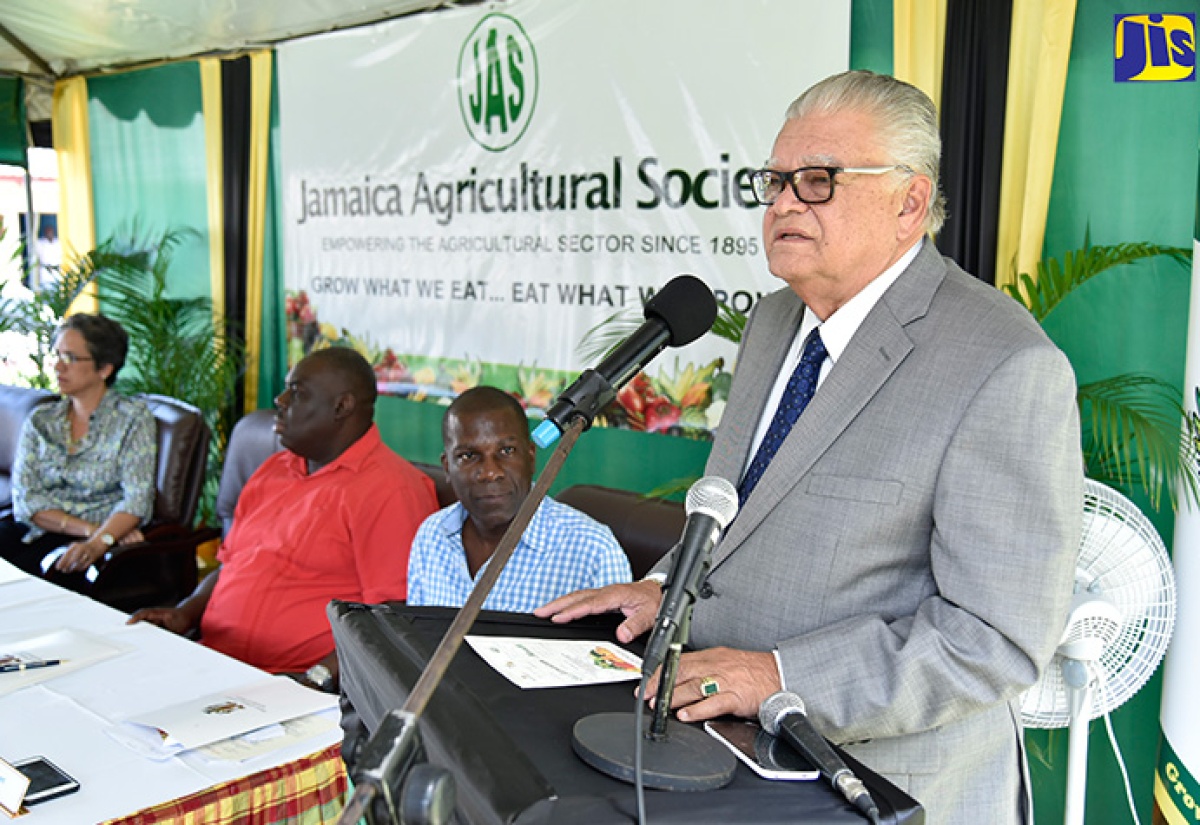Minister Wants Surplus in all Agricultural Areas
By: , November 2, 2017The Key Point:
The Facts
- Eat Jamaican Month 2017 will be observed during November, and activities for the month will be held in partnership with the Jamaican Agricultural Society (JAS). One of the main activities for the month is the ongoing ‘Eat Jamaican’ campaign, which has been organised to encourage Jamaicans to ‘grow what we eat, and eat what we grow’.
- He was speaking at the launch of the 14th annual Eat Jamaican Month at the Ministry, Hope Gardens, on November 1.
The Full Story
Minister of Industry, Commerce, Agriculture and Fisheries, Hon. Karl Samuda, says his mission is to see Jamaica producing enough surplus in all agricultural areas, leading to exports and an increase in the nation’s gross domestic product (GDP).
“All that we do is dependent on the extent to which we can produce more, and we must produce more at a level of efficiency that will make us competitive, not only in the domestic market but also prepare us for the day when we will be able to export the excess,” the Minister said.
He was speaking at the launch of the 14th annual Eat Jamaican Month at the Ministry, Hope Gardens, on November 1.
“Unfortunately, we’re not there yet. And it’s a challenge because there are many players who are involved in agricultural production for export while at the same time not being able to satisfy entirely 100 per cent of the domestic market. That in itself is admirable, because it is laying a foundation for the future with respect to the day when we can go out proudly in the marketplaces of the world and sell our products,” the Minister said.
Eat Jamaican Month 2017 will be observed during November, and activities for the month will be held in partnership with the Jamaican Agricultural Society (JAS). One of the main activities for the month is the ongoing ‘Eat Jamaican’ campaign, which has been organised to encourage Jamaicans to ‘grow what we eat, and eat what we grow’.
The Minister said he hopes to also see more partnerships, and Jamaicans in need of new opportunities taking advantage of the offerings of the Ministry to help increase the country’s productivity.
“We need to work together collectively, and it has to be on the basis that we do not look on agriculture in the traditional way. We have to look not only inward but outward. We have to take a global perspective of agriculture. We have to align ourselves with the Food and Agriculture Organization (FAO), that body of the United Nations responsible for agricultural development throughout the world,” he said.
For his part, President of the Jamaica Agricultural Society (JAS), Norman Grant, gave an overview of the achievements of Eat Jamaican Month since it started 14 years ago.
“At the time when we launched the campaign, we were actually importing a weighted average of US$100 million of food into the country, and our domestic crop production was 491,000 metric tonnes. The campaign has been a tremendous success, because when you look at our statistics at 2016, the weighted average of imported food has been reduced to US$60 million per annum and our production has moved from 491,000 metric tonnes to 668,000 metric tonnes,” he noted.
“This means that the Eat Jamaican campaign has saved the Jamaican economy over US$500 million. There has been an increase in domestic crop production, so we celebrate the importance of this campaign as we look on (its) 14th anniversary… . The economy continues to benefit from the agricultural sector, with the GDP contribution moving from 6.5 per cent to 7.5 per cent and the sector contributing close to 19 per cent of the labour force, with over 200,000 persons employed in the sector,” Mr. Grant added.


